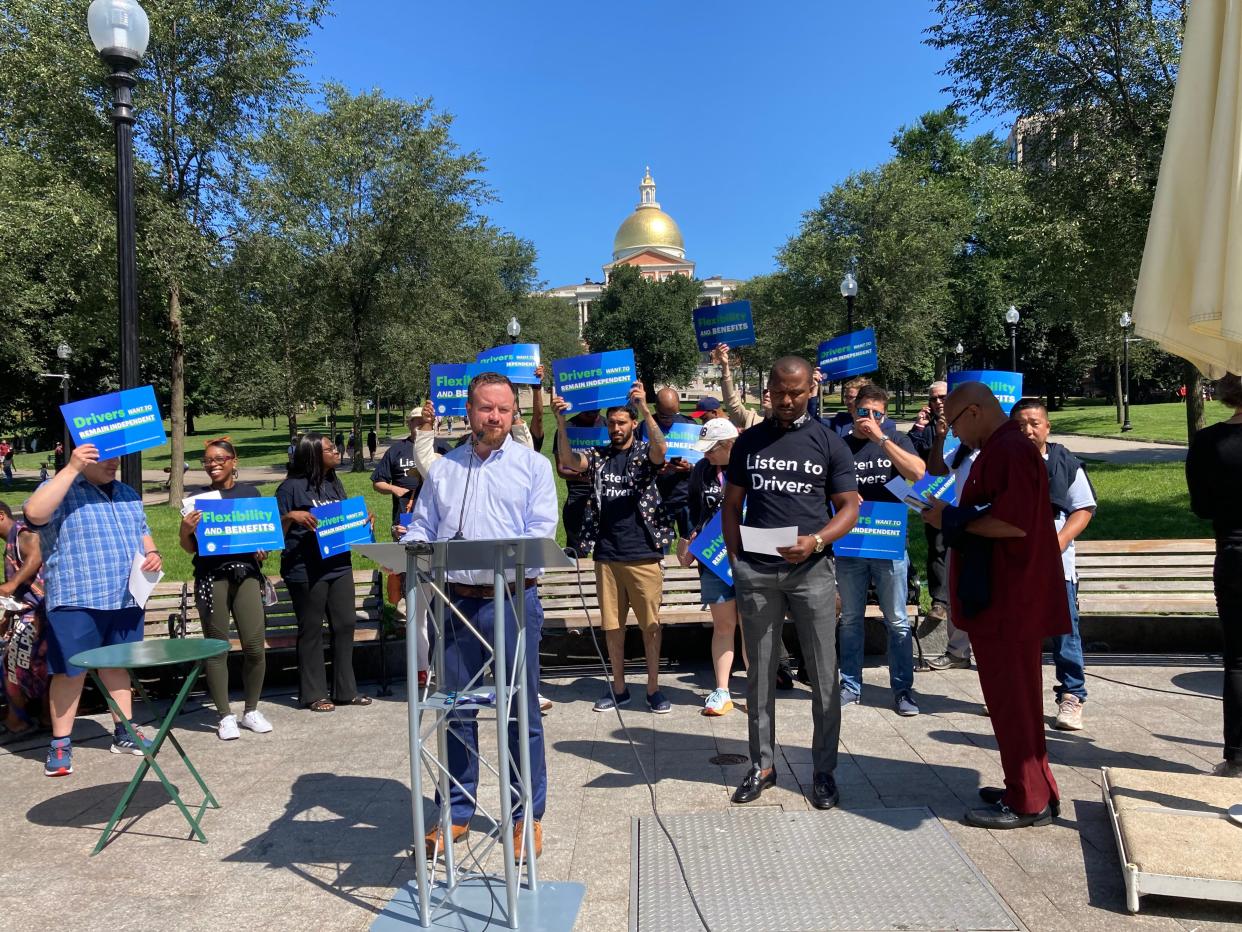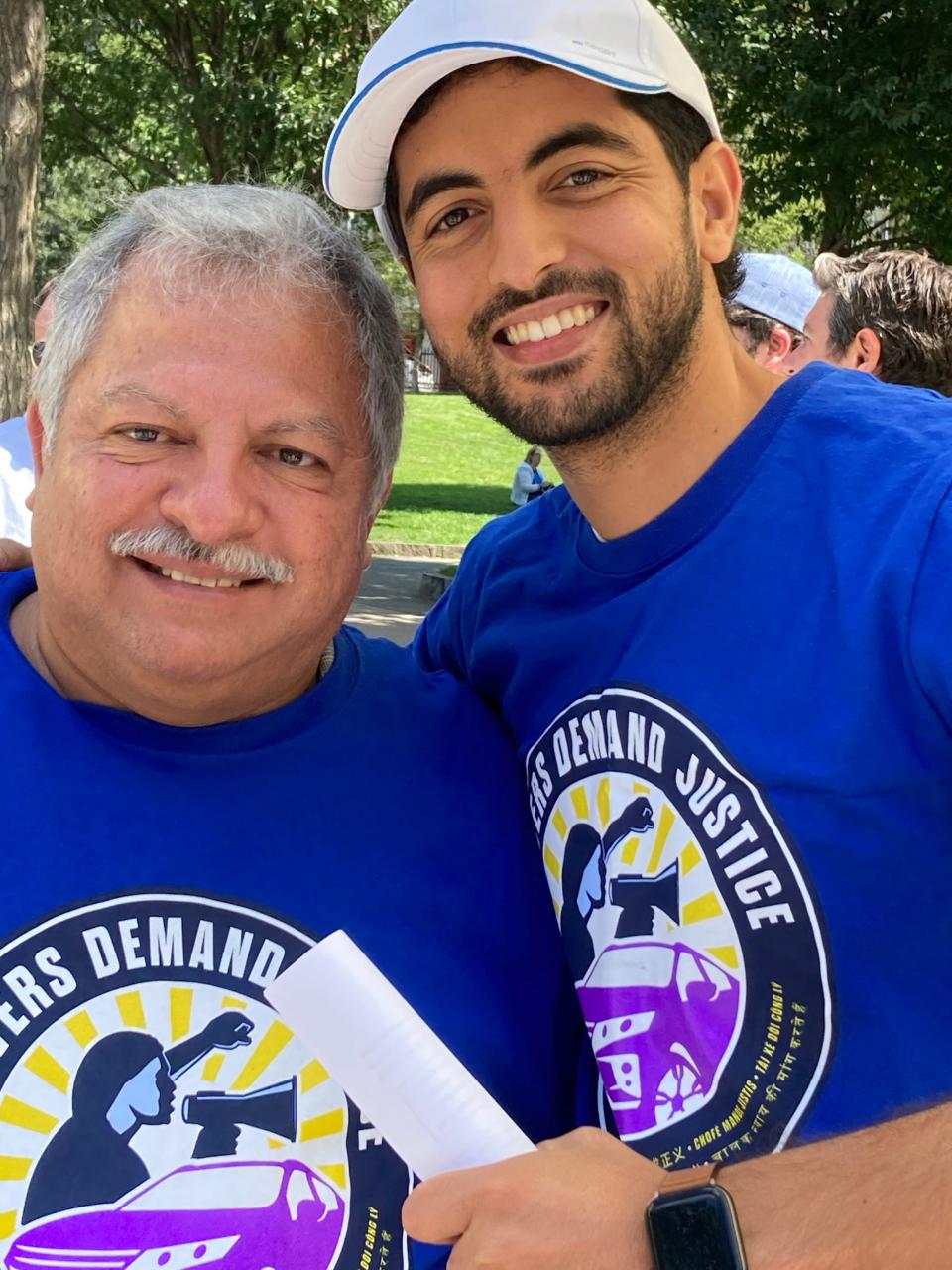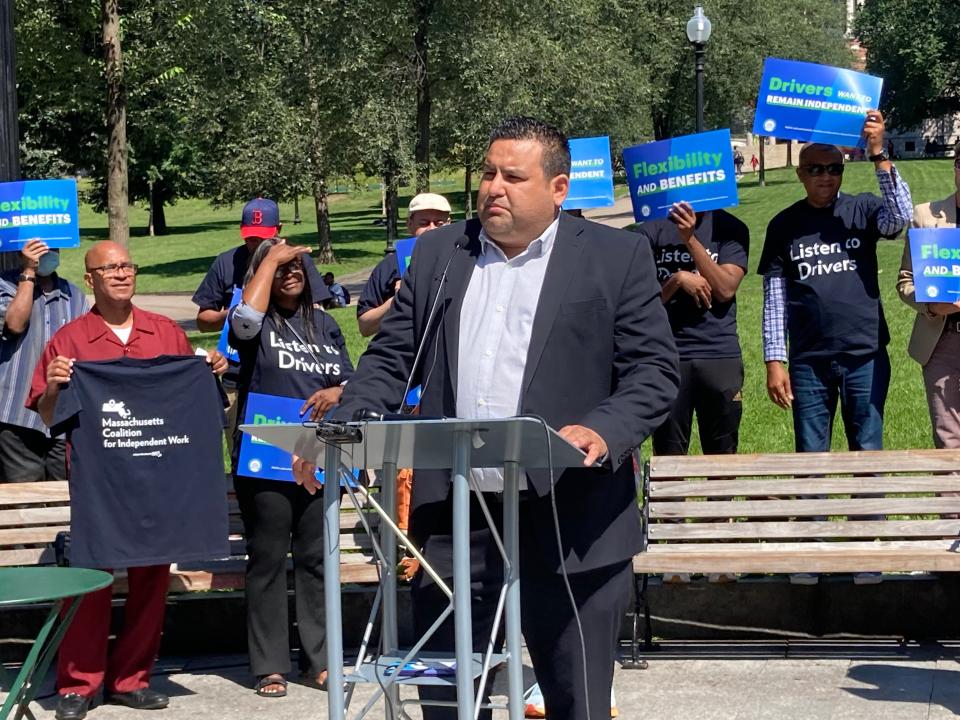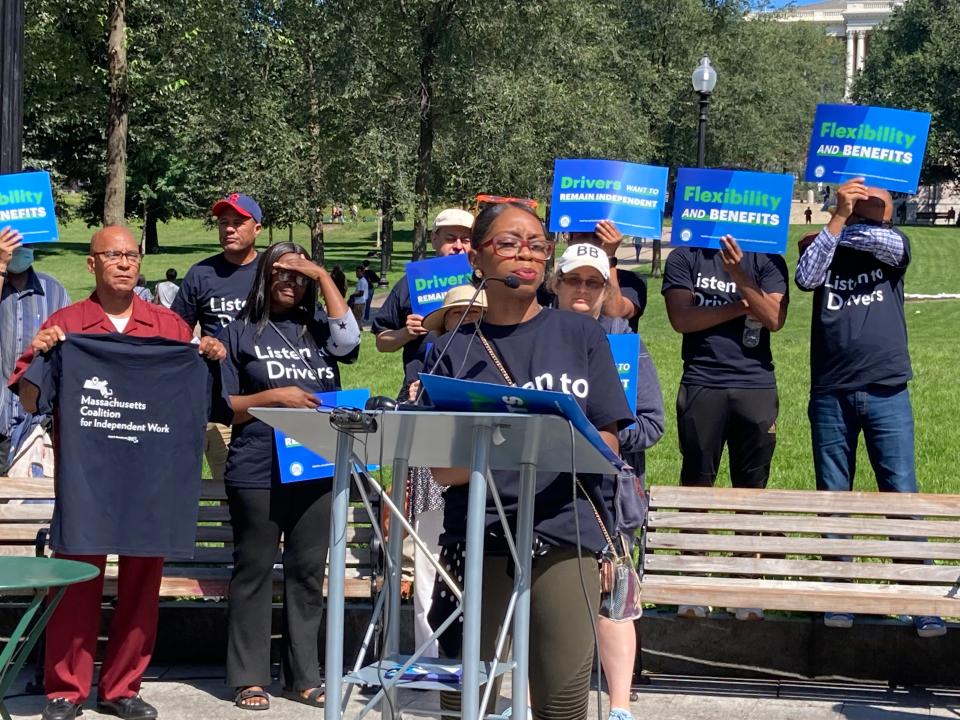Dueling ballot efforts could determine fate of app-based drivers in Mass.

BOSTON - One of two groups championing the rights of ride-share and app-based drivers in Massachusetts filed paperwork Wednesday with the attorney general that would put the future of some 200,000 workers in the hands of Massachusetts voters.
The Massachusetts Coalition for Independent Work filed the necessary paperwork Wednesday morning with Attorney General Andrea Joy Campbell. A second group, Drivers Demand Justice Coalition, has signaled its intention of filing the paperwork necessary to have its version of a proposal supporting ride-share workers included on the 2024 ballot.
The big question Massachusetts voters are being asked to decide is whether drivers are classified as independent contractors or as employees of the app-based companies they work for.
Former Attorney General Maura Healey believes they should be classified as employees, while the ride-share companies consider them independent contractors. That classification makes a difference. Massachusetts laws and regulations governing workplaces require employers to pay minimum wage, offer paid leave for vacation, sick time and family leave, and are required to contribute to the state unemployment insurance fund. Independent contractors do not enjoy any of those benefits.
In addition to the ballot questions surrounding the drivers’ fates, legislators have filed a half-dozen bills addressing the same issues.
The Coalition for Independent Work is backed by app-giants Lyft and Uber, while the Drivers Demand Justice is backed by grassroots organizations, the 32BJ unit of the Service Employees International Union, International Association of Machinists and the Chinese Progressive Association, among others.
Drivers, however, are clear about one thing: They want to retain their flexibility. Drivers in both camps have indicated that they want to be able to work when they want, where they want and however long they want without being subjected to set schedules, the need to apply for special licenses in every community where they work and without having a base camp to which they must return between fares.
It comes down to a union.
Union as intermediary
Drivers Demand Justice are pushing to form a union, a middleman, that could intervene when drivers are deactivated by the ride-share app.
“We get blocked, deactivated, out of the blue,” said Sergio Morales, a driver who works out of Jamaica Plain. “If you get bad reviews because the client thinks you’re ugly, if you get banged, there’s no recourse, no way to get back on the road. There is no one to speak to, no way to get back to business.”

Morales believes a union will speak up for him and will work to have him reinstated.
“We’re being abused by a logarithm,” said Omar Sanhagi, a Malden-based driver.
The Drivers Demand Justice organization are quick to remind that the companies themselves created the working conditions for their drivers.
Alex Guardiola, vice president if governmental affairs and public policy for the Worcester Regional Chamber of Commerce, said ride-share workers are central to the economy. He noted the chamber has supported the ballot initiative from the start.
“The drivers and consumers see the importance of these workers to the local economy,” Guardiola said. While the region is serviced by the Worcester Regional Transit Authority, drivers fill in and allow clients to ride that last mile from a transportation hub to their homes, jobs and schools.
A similar ballot initiative was proposed for 2022 but was nixed by the State Judicial Supreme Courts as not adhering to the necessary ballot initiative format. To address technical questions raised by the courts, multiple options were filed for certification with the attorney general.

"We heard loud and clear that the SJC had concerns about relatedness, and we know that trial lawyers and labor will once again try to use legal loopholes to deny voters the chance to weigh in on this important issue," said Conor Yunits, spokesperson for the Coalition for Independent Work. "We have provided the attorney general’s office with a number of options for certification that should address these concerns and ensure that voters have an opportunity to make their voices heard."
The proposal suggested by the Coalition for Independent Work would set a base salary at $18, almost $4 over Massachusetts minimum wage, and offer accrued paid time off, occupational accident insurance and health care stipends, while also ensuring there was no discrimination against drivers of diverse backgrounds. The proposal would also ensure a recourse for drivers, offering a way to appeal deactivation.
“We should let the voters decide,” said Yunits. The group has conducted several surveys of Massachusetts-based drivers, the most recent released in the spring. “The polls consistently found that 76% of drivers want to stay independent.”
The final question of the poll asks which is more important to the driver: Flexibility or benefits like unemployment insurance and workers' compensation? An overwhelming number of 80% opted for flexibility.

Charles Clemons Muhammad of Boston said he owned a limousine company for decades but now works as an app-based driver.
“I am firmly against the bills backed by the unions that would force us into a full-time model,” Muhammad said. He could apply for other driving jobs with UPS and the MBTA, but “I don’t. Those are not flexible schedules.”
As a mother of three children, Vannetia Prevost of Jamaica Plain needs the flexibility to ensure she can coordinate her family life.
“Between day care, school, after-school, camp, I can’t do 9 to 5. It’s not flexible,” Prevost said.
This article originally appeared on Telegram & Gazette: Ballot initiative for app-based drivers filed with MA Attorney General

